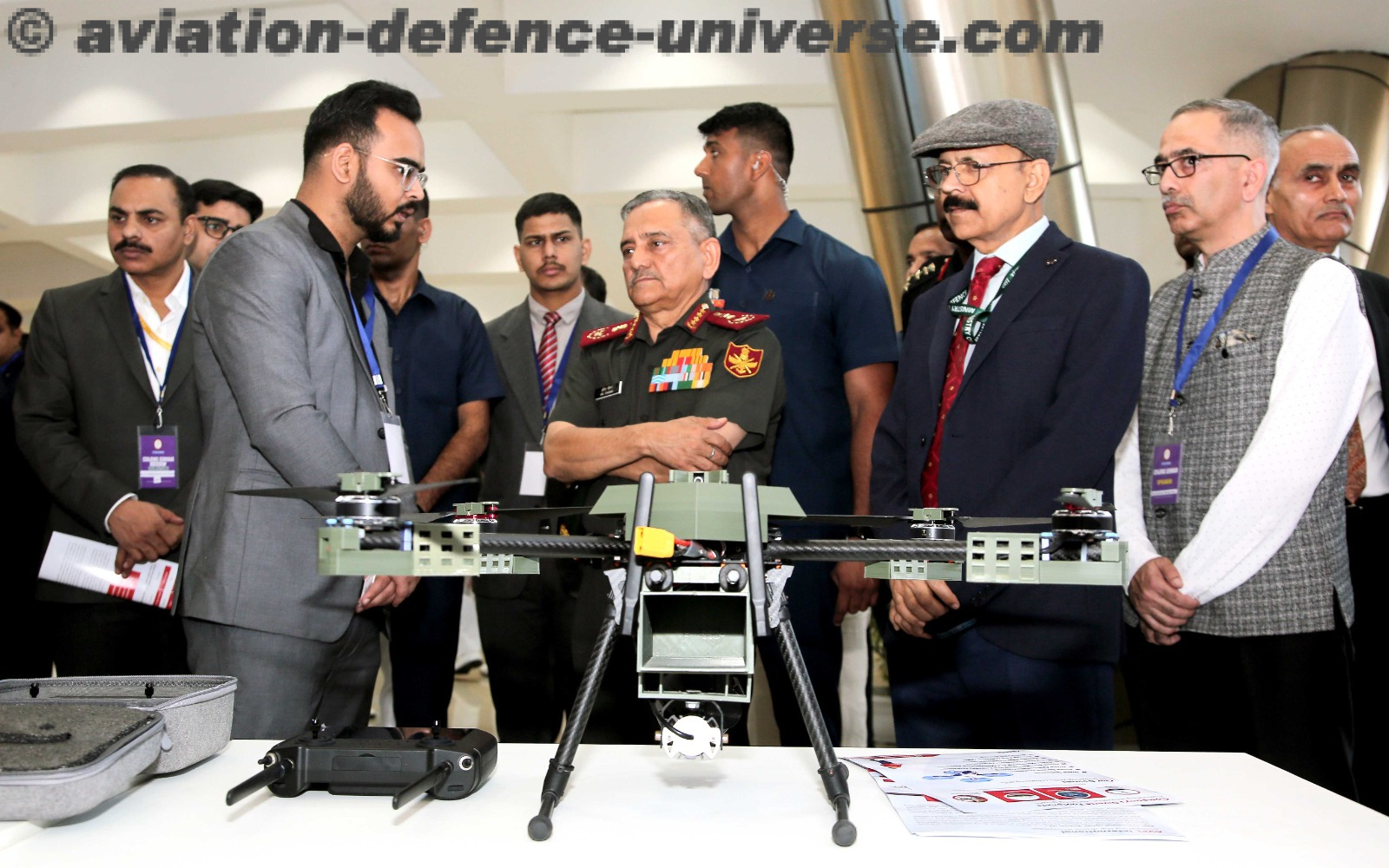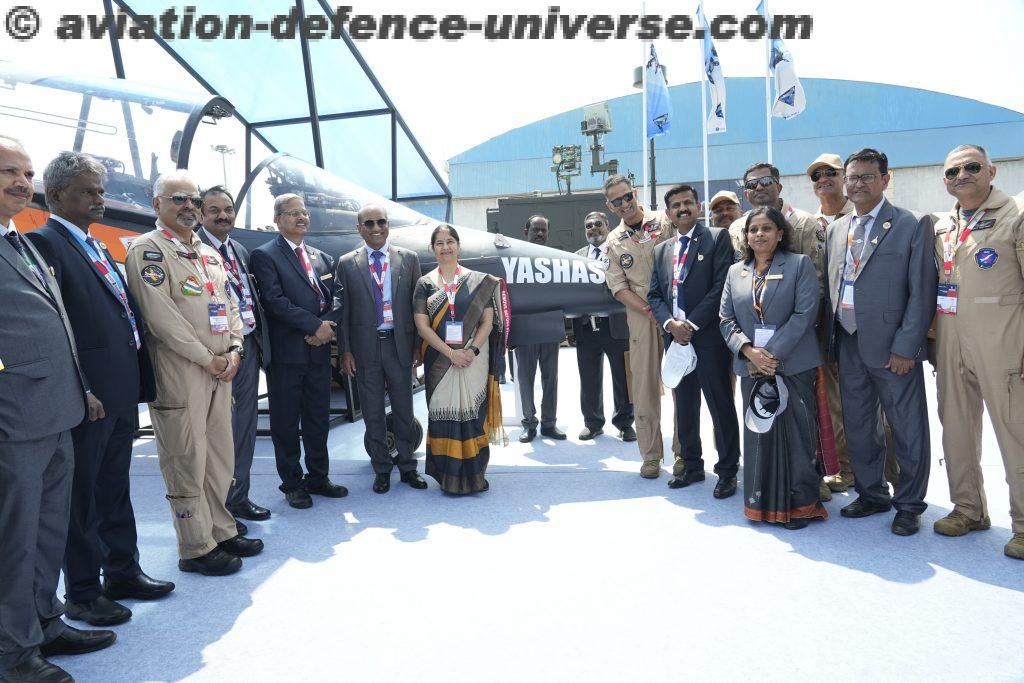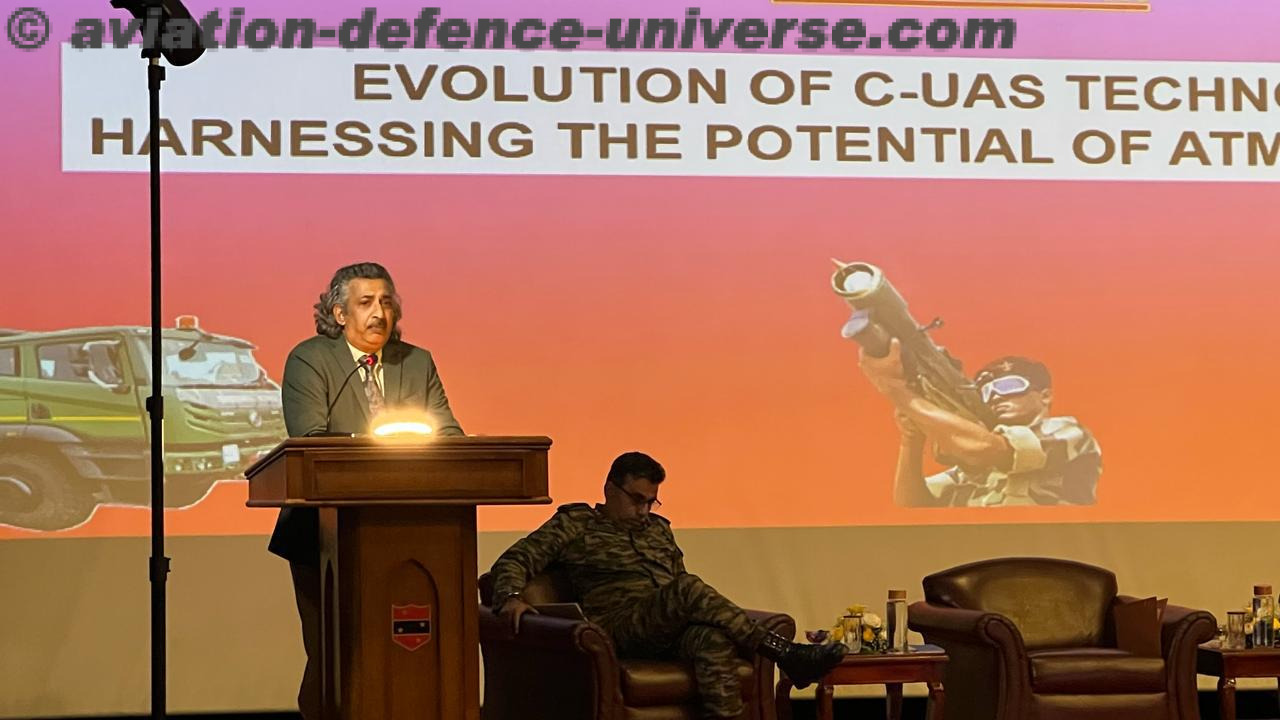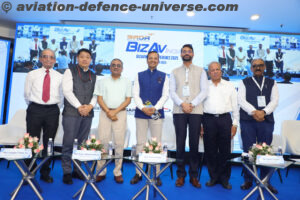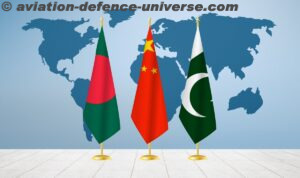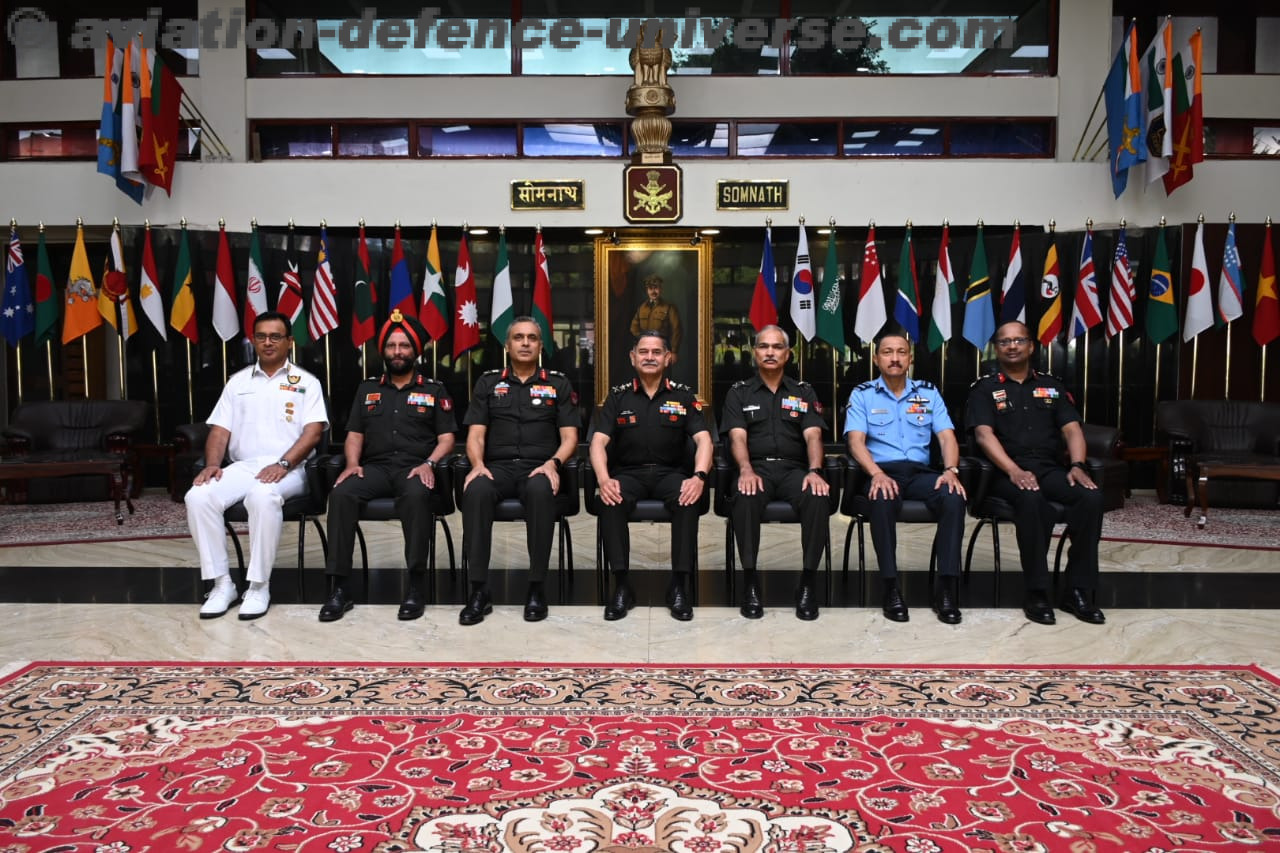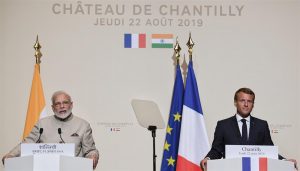
The Prime Minister Narendra Modi and the President of France Emmanuel Macron at Chateau de Chantilly, in France
New Delhi. 23 August 2019. Indian Prime Minister Narendra Modi and French President Emmanuel Macaron advocate a vision of digital technologies which empower citizens, reduce inequalities, and promote sustainable development.
Both the countries affirm their commitment to an open, reliable, secure, stable and peaceful cyberspace. International law, and in particular the Charter of the United Nations, is applicable and is essential to maintaining peace and stability and promoting an open, secure, peaceful and accessible Digital environment. They reaffirm the importance of promoting, and implementing voluntary norms of responsible State behaviour in cyberspace as well as confidence and capacity-building measures developed within the framework of the United Nations. This ensemble is the foundation of peace and security in cyberspace.
They recognise the shared responsibility of a wide variety of actors, in their respective roles, to improve trust, security and stability in cyberspace. They call for the strengthening of the multi-stakeholder approach to ensure an open, secure, stable, accessible and peaceful Digital environment, and stress that this requires joint efforts by governments, industry, academia, and civil society.
France and India recognise the importance of the pursuit and the deepening of the cyber dialogue whose third edition was held in Paris on June 20th, 2019, and welcomed the joint statement adopted at its end.
In this regard, they wish to strengthen their coordination in support of ongoing discussions in various multilateral fora dedicated to the discussion on application of international law and the implementation of the norms for responsible state behaviour in cyberspace adopted in previous UN GGE reports.
They also affirm their willingness to reinforce their cooperation, notably through the sharing of information between their cybersecurity agencies, in order to prevent malicious activities, undertake immediate corrective response, mitigate their potential impact and identify their causes.
Recognizing the need to strengthen the security of Digital processes, products and services, France and India intend to share information on the legal and regulatory framework and best practices, including on the protection of Economic Information Infrastructure impacting National security, and on testing and certification of Digital products. In this context, France and India intend to work together on the risks associated with the deployment of 5G technologies and the technical solutions adopted to deal with them.
France and India further recognise the need to address issue arising from the proliferation of malicious tools and practices in cyberspace, notably by actively participating in relevant discussions under the Wassenaar Arrangement, to which both are parties. Towards this, France and India intend to share their respective legal and regulatory frameworks, particularly with regard to the protection of Economic Information infrastructure.
The importance of a close cooperation between all countries to address cross-cutting threats to cybersecurity, particularly in Economic Information Infrastructure impacting national security cannot be negated.
Both recognize that cybercrime is a transnational crime that requires enhanced international cooperation to effectively bring cyber criminals to justice. As such, they plan to strengthen their cooperation in this area, with a particular view to facilitating sharing of information, evidence collection, the identification of offenders, particularly malware developers, hosters / hosting platform providers or broadcasters. They also express their concerns regarding the security of electronic means of payment and confirm their commitment to the protection of consumers against online financial frauds including ATM cash outs. Finally, they plan to discuss the prevention of cybercrime with Service Providers, Social Media Companies to seek information sharing arrangements.
They wish to strengthen their coordination in supporting the development of a legitimate, fair and balanced approach to secure Digital sector at the international level. France and India also recognize the need to develop the necessary framework to ensure that technologies remain protective of public goods, data sovereignty and fundamental freedoms.
France and India welcome the potential offered by the development of Artificial intelligence, particularly in the field of sustainable development, e-governance, autonomous transportation, smart cities, cyber security, health, education and agriculture.
They recognized the need for developing and implementing AI policies/programs in the context of citizen centric services, data sovereignty from legal, regulatory and cyber security perspectives. France and India are committed to fostering research and development in AI by sharing expertise and best practices.
Both the countries reaffirm the importance of building an international, legal and ethical corpus to ensure the rapid development of artificial intelligence in the service of humankind, in accordance with international law. They affirm their commitment to working in this direction in the various multilateral fora (G7, G20, UN) and participating in the International Panel on Artificial Intelligence (IPAI).
Fight against terrorist, violent extremist and hateful content online and reaffirm the responsibility and accountability of Social Media platforms in the moderation of terrorist and violent extremist content as well as illegal hate speech online and recall their support for the principles set out in the Christchurch Call.
France and India reiterate their commitment to preventing the manipulation of information, spreading fake news and the importance of online freedom of expression. They highlight the risks that can be raised by the circulation of manipulated information fake news and profiling of personal data. France and India call for an international exchange on this threat, particularly on the development of a framework to regulate social media platform.
France and India wish to develop an innovative Digital ecosystem that is secure and respectful of users’ data protection. In the context of the implementation of the EU General Data Protection Regulation (GDPR) and India’s objective to put in place adequate regulation in this area, both parties recognise that the convergence of data protection frameworks of for training and research, exchange of experts and research projects, and awareness-raising measures.
This consortium will meet annually as part of the Knowledge Summit, with its first meeting to be held in Lyon in October 2019.








